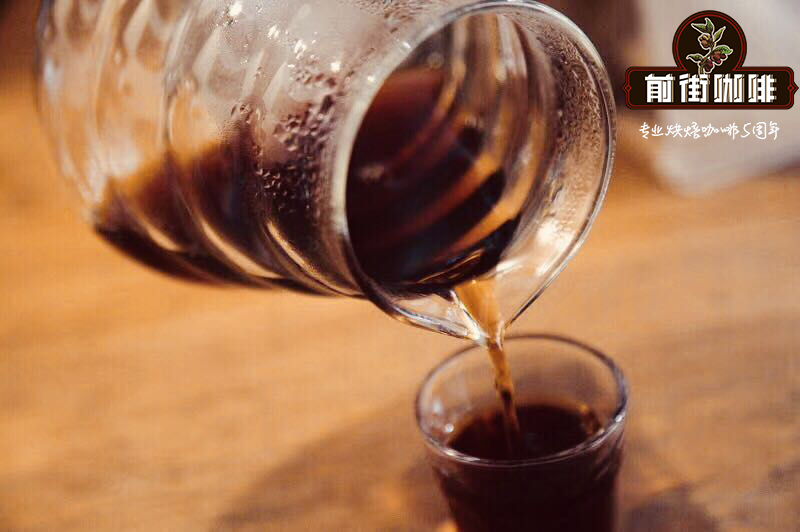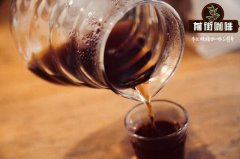The characteristics of African coffee beans the Kenyan aa grade determines the charming fruity sour elves.

Professional coffee knowledge exchange More coffee bean information Please pay attention to coffee workshop (Weixin Official Accounts cafe_style)
Front Street-Kenya Coffee Grading Introduction
African bean flavor: Ethiopian coffee has a strong orange flavor, Kenyan coffee has a strong berry flavor, dark plum juice and grapefruit acid flavor, and sugar cane sweet flavor. The orange aroma of Ethiopian coffee and the berry aroma of Kenyan coffee are the biggest characteristics of African beans, and coffee fans are most fascinated.
Flavor characteristics of Kenyan coffee
Kenyan coffee is complex and fruity with bright acidity, rich taste and unique aroma. The most well-known of these flavor characteristics, let many people love it.
Kenya has many coffee producing regions and varieties. In Kenya, there is high altitude, steady rainfall and good soil quality. There are several major producing areas in central Kenya (Kenya and Aberdare Mountains), western Kenya (Kisii, Nyanza and Bungoma), the Great Rift Valley (Nakuru and Kericho), eastern Kenya (Machakos, Embu and Meru) and coastal Kenya (Taita Hills). These regions have unique climatic and coffee growing conditions, and there are sub-regions, which will make coffee flavors produce subtle differences.
Kenya also has a variety of coffee varieties, especially SL28 and SL34, which are less common in other coffee-producing countries and produce coffee with complex aromas. You may have heard of K7, which is planted at lower elevations and is more drought-tolerant because of its deeper roots. Batian and R11 are two other varieties bred in the laboratory to resist coffee-related diseases.
In addition to specific regions and varieties, you may have heard of Kenyan coffee grading methods, which may be AA, AB, PB, C, E, TT according to the size, shape and quality of the beans. These names all have meanings. AA/AB/C stands for different sizes of coffee beans, PB stands for round beans (that is, a coffee fruit has only one seed), E stands for extremely large coffee beans (elephant beans), TT stands for low density coffee beans (poor quality).
Kenya coffee has a large following in the boutique coffee world, and Kenya AA has extraordinary popularity.
Knowledge: Arabica is one of two very important varieties in the commercial coffee industry, the other being Robusta.
In brief: Qianjie is a coffee research center, happy to share knowledge about coffee with everyone, we share it without reservation only to let more friends fall in love with coffee, and there will be 3 low discount coffee activities every month, because Qianjie wants to let more friends drink the best coffee at the lowest price, which is also the purpose of Qianjie for 6 years!
END
Important Notice :
前街咖啡 FrontStreet Coffee has moved to new addredd:
FrontStreet Coffee Address: 315,Donghua East Road,GuangZhou
Tel:020 38364473
- Prev

What coffee beans do beginners use to make coffee beans? the choice of coffee bean taste see this uncircled article.
Professional coffee knowledge exchange more coffee bean information Please follow the front street of coffee workshop (Wechat official account cafe_style)-novice coffee selection strategies have their own suitable coffee beans compared with siphon pot or mocha pot. The advantage of hand-brewed coffee is that it does not pick coffee beans at all, and unlike the mocha pot, it takes a short time to extract, so if the taste buds are dull, it is not easy to get a layered taste. Hand
- Next

What are the flavor characteristics of African coffee? how does Kenyan coffee taste bring the world to its knees?
Professional coffee knowledge exchange more coffee bean information please follow the coffee workshop (Wechat official account cafe_style) front street-Kenya Coffee introduction African boutique beans are mainly in Ethiopia, Kenya, Yemen, but the coffee industry in Kenya is relatively late. It was not until the beginning of the 20th century that he began to engage in coffee cultivation. Kenya (kenya) although with Ethiopia Russia
Related
- Beginners will see the "Coffee pull flower" guide!
- What is the difference between ice blog purified milk and ordinary milk coffee?
- Why is the Philippines the largest producer of crops in Liberia?
- For coffee extraction, should the fine powder be retained?
- How does extracted espresso fill pressed powder? How much strength does it take to press the powder?
- How to make jasmine cold extract coffee? Is the jasmine + latte good?
- Will this little toy really make the coffee taste better? How does Lily Drip affect coffee extraction?
- Will the action of slapping the filter cup also affect coffee extraction?
- What's the difference between powder-to-water ratio and powder-to-liquid ratio?
- What is the Ethiopian local species? What does it have to do with Heirloom native species?

